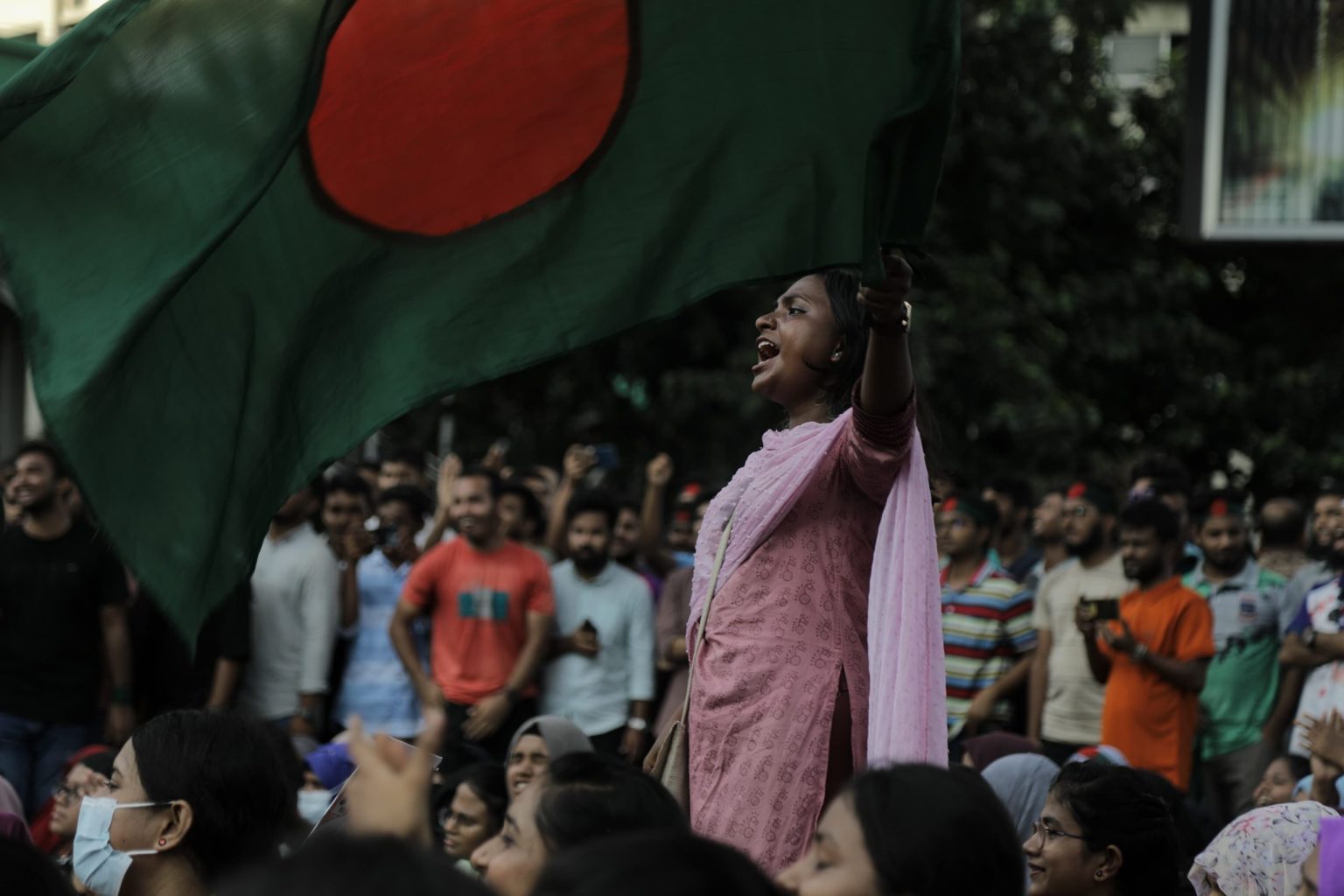Shima Akhter, contesting in the Dhaka University Central Students’ Union (DUCSU) election for secretary of Social Service Affairs, began her story in the narrow lanes of Beguntola, Mirpur – where polythene shacks and tin roofs struggled against storms, snakes, and fires.
Today, she is a familiar face in protests – marching for student rights, raising her voice for women’s safety and against rape.
She was struck with a brick during the July uprising last year, loosening several teeth in the process, but returned to the streets the very next day.
“If I had died then, maybe it would have been better for the country. But living means I still have work to do. If the students choose me in the ballots, I want to work for to ensure the campus ecosystem becomes more humane,” she reflected.
Her resolve was forged in hardship. Born in 1999, the youngest of five siblings, she was forced to survive in an environment of scarcity.
Three of her elder sisters abandoned school in their early teens to work in garment factories abroad, a sacrifice that supported the family but sacrificed their education.
Her father, Giasuddin Mridha – a freedom fighter who refused state benefits out of pride – runs a tea stall, while her mother, Shahida Begum, balanced endless shifts between the tea stall and homemaking, labouring from dawn until midnight, and enduring domestic violence at home.
Shima recalls queuing for hours to fetch drinking water, bathing in dirty ponds, hiding under the bed during storms, and narrowly escaping being trafficked.
Later, she endured harassment from a man her family trusted. “My brother tried to protect me,” she said, “but we were too afraid to tell anyone.”
The turning point came when a group of university students opened Pathshala, a school for underprivileged children, in her neighbourhood. For the first time, Shima and her brother were treated with dignity in the classroom.
Yet, outside its walls, slum children like her were mocked, often bullied during cultural events. Still, Pathshala became her political nursery. Teachers there taught her that women, especially working-class women like her mother, bore the deepest layers of oppression.
It was in Pathshala that she began to question why some neighbourhoods boasted paved roads while hers were made of mud, and why opportunities always seemed reserved for the privileged.
Though she had once dreamt of studying fine arts, poverty redirected her path. She secured a spot at Dhaka University’s Department of Music, one of only 18 students admitted that year.
But struggles followed her there too. Unable to afford instruments, she was humiliated by a teacher who mocked her for not knowing how to play the harmonium, even asking her if she planned to “sing on the streets.”
Moreover, her father’s long battle with cancer and eventual death in 2023 forced her family deeper into hardship.
Instead of breaking her, these experiences sharpened her philosophy. In her first year, she joined the Students’ Federation of Bangladesh, drawn to its progressive ideals of equality.
Since then, she has been active in movements that challenged injustice on and off campus.
Now, as she campaigns for DUCSU, she insists her candidacy is not driven by ambition but by responsibility.
“I will not be an ornamental presence,” she says. “I want to fight inequality and make this campus human-friendly – for students, teachers, workers, even the rickshaw puller at TSC. My service will be for everyone connected to this ecosystem.”


